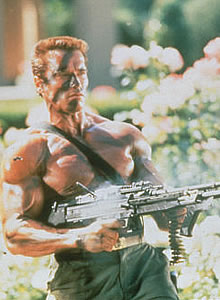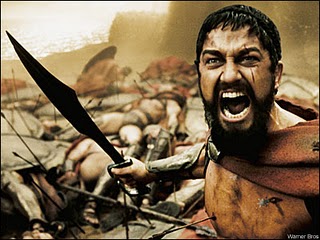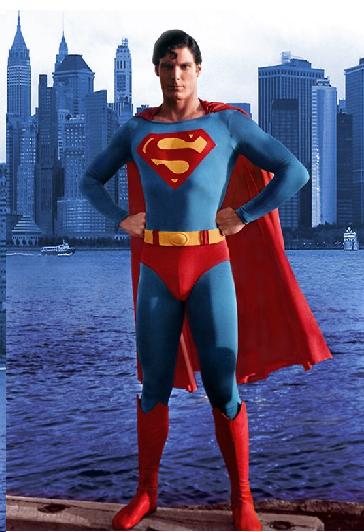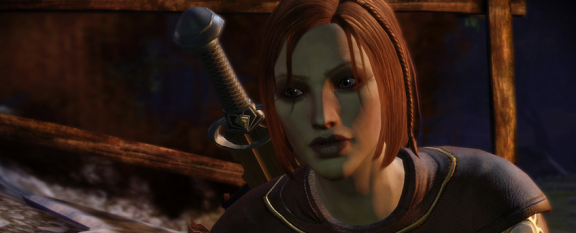GENDER ROLES IN GAMING
An essay/op/ed/rant on the evolution of gender roles in the media
 Solitayre
Solitayre- 06/30/2011 02:30 AM
- 28114 views
It’s one of the most inescapable truths of our time; sex sells. It’s hard to go anywhere or look at anything without being accosted by images of airbrushed, scantily-clad models ergonomically designed to make you feel less attractive by the second. And perhaps nowhere is this trend become more prevalent to the point of practically being embarrassing than in the realm of gaming. I suspect one reason is games tend to have animated art. They can render a female with unrealistic proportions, wearing outfits no real woman with an ounce of self-respect would ever agree to wear. Another reason is likely to be that gamers are predominantly a demographic composed of young males who are likely to be receptive to these stimuli. Whatever the reason, sex has become a cornerstone of marketing games, often to the point where the advertisers aren’t even trying to hide it anymore.

But as easy as it is to say that only women are the victims of this flagrant exhibitionism, this is simply not true at all, nor has it ever been. Men, too, are a victim of this type of sexual stereotyping, they too are subjected to unrealistic standards to live up to, and I’d argue it is just as degrading and damaging to them as it is to women. It’s just not as polite or acceptable to talk about it. It may be because men have historically held more power than women and it seems vulgar to some people to ever suggest that men have it bad in any way whatsoever. I suspect the more pressing reason, however, is that it is simply not socially acceptable for men to admit to feeling this way.
So let’s take a look at the history that brought us here. These issues existed long before games were popular, and to really understand the evolution of gender roles in gaming, you have to look much further back, into cinematic history. You have to look at the pioneer of the modern male gender role: John Wayne.
You could say a lot of things about John Wayne, surely. But there’s little doubt that few figures in popular culture have been so enduring or had so huge an impact. John Wayne became famous for his portrayals of manly, badass Western antiheroes. He was a chiseled jawed, glaring, tough-talking fighter who resolved all disputes with violence and told no one his feelings. He was tough, and everything he did was tough, and there was no room in his image for anything soft or compromising. Women swooned in his wake, and John Wayne would sometimes ravish them as only John Wayne could, but he rarely bothered to acknowledge their feelings and certainly never reciprocated, for love, affection, these things were alien to him. A man should have sex, but should not love. A man should not feel. A man should fight and kill.
It is this enduring image of a man who must be strong and violent and eschew anything unmanly that persists even to this day. You see it everywhere, in marketing, in movies, in everyday products. I remember one commercial in particular, I think it was a Nivea for Men Body Wash. It had moisturizers, but moisturizers are unmanly so instead they called them hydrators because it sounds cooler. The commercial began with a bombastic voice proclaiming “Prepare to defeat dry skin!” because men are fighters and must solve everything with violence. I don’t remember the rest of the commercial but I guarantee it ended with a woman draped over the man in question, because a man’s primary role is to be attractive and alluring to the opposite sex (that’s right ladies, it’s not just you who has to do that.)
 This image influenced cinema for decades to come. It influences the quintessential action movies of the eighties and nineties, where oiled, badass men took on armies of foes, fighting his way through whatever obstacles stood in his way with stylized, exaggerated violence. Women in these films were typically little more than objects, bargaining chips held by the villains, trophies to be fought over and won.
This image influenced cinema for decades to come. It influences the quintessential action movies of the eighties and nineties, where oiled, badass men took on armies of foes, fighting his way through whatever obstacles stood in his way with stylized, exaggerated violence. Women in these films were typically little more than objects, bargaining chips held by the villains, trophies to be fought over and won.
This eventually came to its logical conclusion in the 21st century, giving birth to what a good friend of mine affectionately terms “boner movies,” exaggerated, stylized scenarios of male wish-fulfillment, movies like The 300 where the glory and exaggeration of everything men want to be are taken to new and impossible heights.

But was it always this way? Did things have to turn out this way? Was there ever a point where masculinity could have been depicted differently? Was there ever anyone who dared to try to break out of this trend?
There was. And it came in a most unlikely place. It happened in 1978, perhaps the one time this trend of hyper-machismo might have been able to be averted. One man tried something different. And that man was Superman.

Christopher Reeve’s version of Superman was a very different notion of how a masculine hero could be portrayed. Certainly, Superman is the height of strength and power. He can lift buildings over his head, bench-press tanks, leap over cities and punch through steel plate walls. No one was ever going to question this guy’s manliness. He has nothing to prove to us. It would have been easy to make Superman a bland action hero who simply saves the day through acts of extreme badassery. Instead, Superman in this film was portrayed in a way few heroes had been before and few have been since.
It depicted Superman as nice. Sensitive. Gentle, even. He does not hide his feelings, but shares them. He shares moments of tenderness, even intimacy, with others. He was deep, thoughtful, profound, even philosophical. He was deeply troubled by the burden he carries, protecting an entire world. To depict such a powerful, masculine figure in such a way was bold and innovative.
Why did this never really catch on? Because guys hate things like this, that’s why.
You can rail against unfair notions of gender stereotypes all you want. The simple truth is, particularly among western audiences, that roles, both male and female, that break out of established gender roles aren’t popular among men. Since, as mentioned, the audiences of most video games are men, the portrayal of gender roles adheres. Depictions of male characters as thoughtful or sensitive are cast down as “emo.” Depictions of strong, confident women are lambasted by men as “ball-breakers.” Most men are content to play out their power fantasies as a burly beefcake to save the day, while scantily clad females are generally there to be rescued and make bad sexual innuendo with.
This is why people used to love Cloud. Yes, a long, long time ago, Cloud was basically the coolest guy ever. Everyone thought Cloud was the biggest badass of all time. (There are going to be spoilers here but FF7 is older than the average user of this site.) But then, people found out Cloud’s secret, and learned he wasn’t as big a badass as they thought. He was actually kind of an awkward dork. And from then on, people hated Cloud. Is it any wonder that in later works to come out of the FF7 universe, Cloud is back to being a surly badass who tells no one his feelings?
The same thing happened with Squall in FF8. He acted like a stoic loner badass, but in reality he actually had thoughts and feelings boo emo.
Men are not allowed to have feelings. Especially in games.
And it shows up even in places you don’t necessarily expect, either. Let’s look at a more recent example, The Grey Warden from Dragon Age: Origins.
Some of you are going to be surprised that I mentioned this character of all the characters from many recent RPGs to single out. Mostly, because the Grey Warden is a completely customizable figure who’s gender, appearance, backstory , and personality are completely defined by player input. You can play the Warden any way you like, as a hero or a villain or anything in between.
But there are two things universal about the Warden, no matter what you do.
1. The Warden is the biggest badass of all time. It doesn’t matter if you were a Human Noble bred to fight wars or a cloistered mage of the Circle who’s never been outside in his entire life, the Grey Warden is a badass. He will cut a swathe through approximately 2500 foes over the course of his adventure. He is a killing machine even if his background suggests he shouldn’t be.
2. The Warden is the sexiest thing since sex. Everyone wants the Warden. Everyone. Whether you’re male or female (though its especially more noticeable for females), everyone you meet will find your hero to be extremely attractive, and there are an absolutely absurd number of opportunities throughout the game to ravish both NPCs and party members alike with your insane sexual prowess. The characters of the game are more than willing to indulge in any fantasy you might want to imagine, from one night stands, long term relationships, using sex as a form of persuasion, to lesbian make-outs, magical sex rituals and a three or even four way sexual encounter.

It’s no secret this is all here to appeal to the baser desires of the mostly male gaming demographic. The question is, what can be done about it? Personally, it’s getting to the point where it’s frankly just getting embarrassing.
I’m not a prude. (Well I am but within reason.) I understand that a certain amount of sexual stimulation and “titillation” is harmless. It can give boys a safe outlet to indulge and explore their sexual desires without the dangers inherent in other forms of “exploration.” But there’s a time and a place for that. And that time isn’t “all the time,” and that place isn’t “everywhere you look, always.”
Moreover, putting such unrealistic expectations of "manliness" and "machismo" into the minds of young men is just as unhealthy and damaging to them as the unrealistic expectations of beauty and sexuality that plague young women. It's a downward spiral that ends up hurting a lot of people. And I see no reason why we are forced to endure it save for the sake of commercialism.

Above: Subtlety
But as easy as it is to say that only women are the victims of this flagrant exhibitionism, this is simply not true at all, nor has it ever been. Men, too, are a victim of this type of sexual stereotyping, they too are subjected to unrealistic standards to live up to, and I’d argue it is just as degrading and damaging to them as it is to women. It’s just not as polite or acceptable to talk about it. It may be because men have historically held more power than women and it seems vulgar to some people to ever suggest that men have it bad in any way whatsoever. I suspect the more pressing reason, however, is that it is simply not socially acceptable for men to admit to feeling this way.
So let’s take a look at the history that brought us here. These issues existed long before games were popular, and to really understand the evolution of gender roles in gaming, you have to look much further back, into cinematic history. You have to look at the pioneer of the modern male gender role: John Wayne.
You could say a lot of things about John Wayne, surely. But there’s little doubt that few figures in popular culture have been so enduring or had so huge an impact. John Wayne became famous for his portrayals of manly, badass Western antiheroes. He was a chiseled jawed, glaring, tough-talking fighter who resolved all disputes with violence and told no one his feelings. He was tough, and everything he did was tough, and there was no room in his image for anything soft or compromising. Women swooned in his wake, and John Wayne would sometimes ravish them as only John Wayne could, but he rarely bothered to acknowledge their feelings and certainly never reciprocated, for love, affection, these things were alien to him. A man should have sex, but should not love. A man should not feel. A man should fight and kill.
It is this enduring image of a man who must be strong and violent and eschew anything unmanly that persists even to this day. You see it everywhere, in marketing, in movies, in everyday products. I remember one commercial in particular, I think it was a Nivea for Men Body Wash. It had moisturizers, but moisturizers are unmanly so instead they called them hydrators because it sounds cooler. The commercial began with a bombastic voice proclaiming “Prepare to defeat dry skin!” because men are fighters and must solve everything with violence. I don’t remember the rest of the commercial but I guarantee it ended with a woman draped over the man in question, because a man’s primary role is to be attractive and alluring to the opposite sex (that’s right ladies, it’s not just you who has to do that.)

And you LOVE this movie. Go ahead, admit it. You'll feel better.
This eventually came to its logical conclusion in the 21st century, giving birth to what a good friend of mine affectionately terms “boner movies,” exaggerated, stylized scenarios of male wish-fulfillment, movies like The 300 where the glory and exaggeration of everything men want to be are taken to new and impossible heights.

THIS…IS… MANLY!
But was it always this way? Did things have to turn out this way? Was there ever a point where masculinity could have been depicted differently? Was there ever anyone who dared to try to break out of this trend?
There was. And it came in a most unlikely place. It happened in 1978, perhaps the one time this trend of hyper-machismo might have been able to be averted. One man tried something different. And that man was Superman.

The nicest guy you'll ever meet who can punt you into the next timezone.
Christopher Reeve’s version of Superman was a very different notion of how a masculine hero could be portrayed. Certainly, Superman is the height of strength and power. He can lift buildings over his head, bench-press tanks, leap over cities and punch through steel plate walls. No one was ever going to question this guy’s manliness. He has nothing to prove to us. It would have been easy to make Superman a bland action hero who simply saves the day through acts of extreme badassery. Instead, Superman in this film was portrayed in a way few heroes had been before and few have been since.
It depicted Superman as nice. Sensitive. Gentle, even. He does not hide his feelings, but shares them. He shares moments of tenderness, even intimacy, with others. He was deep, thoughtful, profound, even philosophical. He was deeply troubled by the burden he carries, protecting an entire world. To depict such a powerful, masculine figure in such a way was bold and innovative.
Why did this never really catch on? Because guys hate things like this, that’s why.
You can rail against unfair notions of gender stereotypes all you want. The simple truth is, particularly among western audiences, that roles, both male and female, that break out of established gender roles aren’t popular among men. Since, as mentioned, the audiences of most video games are men, the portrayal of gender roles adheres. Depictions of male characters as thoughtful or sensitive are cast down as “emo.” Depictions of strong, confident women are lambasted by men as “ball-breakers.” Most men are content to play out their power fantasies as a burly beefcake to save the day, while scantily clad females are generally there to be rescued and make bad sexual innuendo with.
This is why people used to love Cloud. Yes, a long, long time ago, Cloud was basically the coolest guy ever. Everyone thought Cloud was the biggest badass of all time. (There are going to be spoilers here but FF7 is older than the average user of this site.) But then, people found out Cloud’s secret, and learned he wasn’t as big a badass as they thought. He was actually kind of an awkward dork. And from then on, people hated Cloud. Is it any wonder that in later works to come out of the FF7 universe, Cloud is back to being a surly badass who tells no one his feelings?
The same thing happened with Squall in FF8. He acted like a stoic loner badass, but in reality he actually had thoughts and feelings boo emo.
Men are not allowed to have feelings. Especially in games.
And it shows up even in places you don’t necessarily expect, either. Let’s look at a more recent example, The Grey Warden from Dragon Age: Origins.
Some of you are going to be surprised that I mentioned this character of all the characters from many recent RPGs to single out. Mostly, because the Grey Warden is a completely customizable figure who’s gender, appearance, backstory , and personality are completely defined by player input. You can play the Warden any way you like, as a hero or a villain or anything in between.
But there are two things universal about the Warden, no matter what you do.
1. The Warden is the biggest badass of all time. It doesn’t matter if you were a Human Noble bred to fight wars or a cloistered mage of the Circle who’s never been outside in his entire life, the Grey Warden is a badass. He will cut a swathe through approximately 2500 foes over the course of his adventure. He is a killing machine even if his background suggests he shouldn’t be.
2. The Warden is the sexiest thing since sex. Everyone wants the Warden. Everyone. Whether you’re male or female (though its especially more noticeable for females), everyone you meet will find your hero to be extremely attractive, and there are an absolutely absurd number of opportunities throughout the game to ravish both NPCs and party members alike with your insane sexual prowess. The characters of the game are more than willing to indulge in any fantasy you might want to imagine, from one night stands, long term relationships, using sex as a form of persuasion, to lesbian make-outs, magical sex rituals and a three or even four way sexual encounter.

And Leliana can tell you stories you wouldn’t believe about pudding.
It’s no secret this is all here to appeal to the baser desires of the mostly male gaming demographic. The question is, what can be done about it? Personally, it’s getting to the point where it’s frankly just getting embarrassing.
I’m not a prude. (Well I am but within reason.) I understand that a certain amount of sexual stimulation and “titillation” is harmless. It can give boys a safe outlet to indulge and explore their sexual desires without the dangers inherent in other forms of “exploration.” But there’s a time and a place for that. And that time isn’t “all the time,” and that place isn’t “everywhere you look, always.”
Moreover, putting such unrealistic expectations of "manliness" and "machismo" into the minds of young men is just as unhealthy and damaging to them as the unrealistic expectations of beauty and sexuality that plague young women. It's a downward spiral that ends up hurting a lot of people. And I see no reason why we are forced to endure it save for the sake of commercialism.
Posts 

author=Solitayre
I don't think I even have the courage to read my own opinions on this topic from over ten years ago. Would it be better if I deleted it, do you think?
i have dumb shit I said as an 17 year old since 2008 how do you think I feel? but really i don't mind it, I can say I changed my mind and move on. I get that political subject matter might be another thing, but that shit requires growth/cultivation more than anything else.
At a glance though I don't see this article as too out of left field compared to a recent youtube essay about the same subject. So maybe things haven't changed much.















